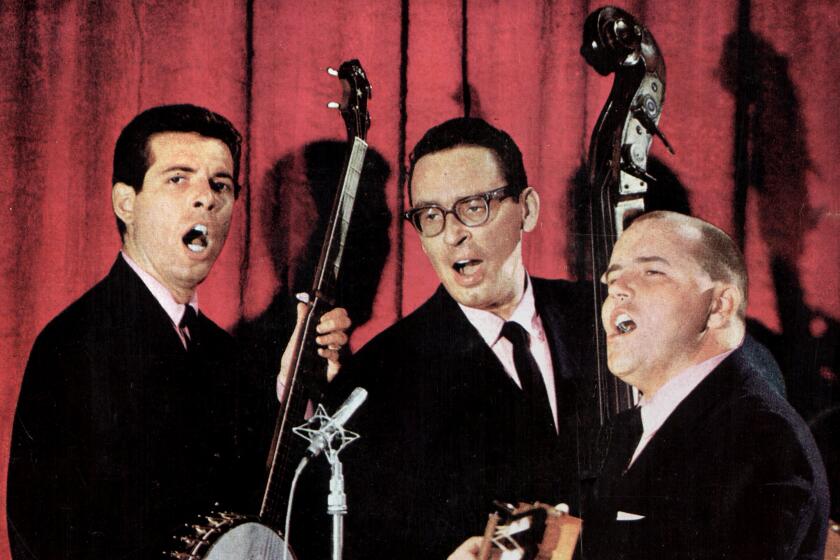Pinetop Perkins dies at 97; Mississippi Delta blues piano player
Pinetop Perkins, a regal piano player who was one of the last of the original Mississippi Delta blues musicians, died Monday of cardiac arrest at his home in Austin, Texas. He was 97.
“He was absolutely the premier blues piano player,” said Bruce Iglauer, founder of Chicago’s Alligator Records, an independent blues label. “His career spanned literally over 80 years. He was the symbol of a whole generation of musicians.”
Just last month Perkins’ easygoing keyboard virtuosity won him a Grammy Award for best traditional blues album, for “Joined at the Hip: Pinetop Perkins & Willie ‘Big Eyes’ Smith.” That made him the oldest Grammy winner, the honor augmenting his 2007 Grammy for his work on “Last of the Great Mississippi Delta Bluesmen: Live in Dallas” and his 2005 Grammy for lifetime achievement.
Perkins’ influence was vast and his musical pedigree impeccable, for he collaborated with all forms of blues royalty, from Muddy Waters to Robert Nighthawk, Earl Hooker to B.B. King. Through it all, he maintained an enduring mastery of the piano.
Joe Willie Perkins learned about blues in the best — and the toughest — way possible: immersed in the culture that produced it.
Born on a cotton plantation near Belzoni, Miss., in 1913, he worked the fields from age 7, drove a truck for a living at 18 and was stabbed in the arm in his late 20s. The barroom attack tore his tendons and cut his bone, ending his dreams of becoming a leading guitar man.
Having taught himself guitar at age 10 and the piano a few years later, Perkins had plenty of musical inspiration to draw upon: He absorbed field hollers picking cotton and learned blues licks playing the juke joints of the Mississippi Delta, the mythic birthplace of the art form.
The tragedy — and turning point — in his musical life occurred in 1942, when an angry woman mistakenly blamed him for an offense her husband had committed and swung a blade at him.
“It was a freak accident,” Perkins later told the Chicago Tribune. “When she did that, I just said, ‘Well, you just cut me out of my career, that’s all I can say.’ It was hard to start over. It was kind of rough, but I just figured out playing the piano the best way I could.”
Indeed, he played piano with harmonica master Sonny Boy Williamson on the iconic King Biscuit Time radio show and with B.B. King in Memphis.
His caliber of keyboard brilliance had not often been encountered in blues, and his early 1950s recording of Clarence “Pinetop” Smith’s showpiece “Pinetop’s Boogie Woogie” established his reputation and gave him his famous nickname.
By then he had moved to the South Side of Chicago, part of a great migration of blues artists such as Roebuck “Pops” Staples and David “Honeyboy” Edwards who re-imagined and electrified the art form for an urban audience.
Generations of musicians learned and modeled their art on Perkins, including no less than Ike Turner.
“Pinetop would be the birth of rock ‘n’ roll, because he taught me what I played,” Turner said in 2004.
For all of Perkins’ influence and experience, he didn’t cut his first recordings under his own name until the late 1980s, including a contribution to “Living Chicago Blues, Vol. 2.” The recordings and the accolades flowed after that, including “Portrait of a Delta Bluesman,” “Down in Mississippi” and “Ladies Man.”
Perkins had no immediate survivors.
More to Read
Start your day right
Sign up for Essential California for the L.A. Times biggest news, features and recommendations in your inbox six days a week.
You may occasionally receive promotional content from the Los Angeles Times.






